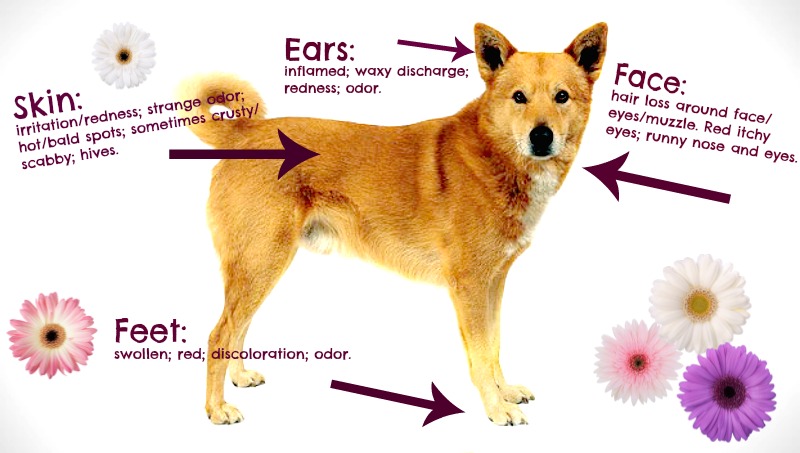Recommended Suggestions For Choosing Best Vitamins For Dogs
Recommended Suggestions For Choosing Best Vitamins For Dogs
Blog Article
Probiotics Can Aid Pets And Cats Suffering From Allergies.
Probiotics can play an essential role in managing and alleviating skin allergies in dogs as well as cats. Probiotics are beneficial and can help maintain an optimal microbiome in the gut. This is in turn beneficial to the immune system and skin. Probiotics are beneficial for pets suffering from allergies:
Immune System Regulation
Immune Balance:
Function: Probiotics are responsible for controlling the immune system. They do this by encouraging the development of healthy bacteria as well as blocking the growth of harmful bacteria.
Benefits: A healthy immune system can lessen hypersensitivity reactions that contribute to skin allergies. This can reduce the severity, and frequency of allergic reactions.
Inflammation Reduction
Anti-inflammatory Effects:
Function: Some probiotic strains make anti-inflammatory compounds and can regulate the inflammation response of the body.
Benefits - Through reducing systemic swelling, probiotics help to decrease itching, inflammation, and other symptoms that are associated with allergic reactions.
Gut-Skin Axis
Improved gut health:
Function: The gut-skin axis goes to the relationship between skin and gut health. Probiotics can help improve the gut barrier and digestive health.
Benefits Gut health can stop the release of toxins and allergies in the bloodstream which could cause skin reactions. It can also reduce symptoms of skin allergies.
Strengthening Skin Barrier
Improved Skin Barrier
Function Ceramides are a type of lipid that is influenced by probiotics. These lipids are vital to ensure a healthy barrier the skin.
Benefits A more robust skin barrier can help protect against environmental allergens. This helps reduce skin irritation and allergic reaction.
Allergy Symptom Management
Symptom Relief:
Function: By regulating the release of histamines as well as other chemical components involved in allergic reaction, probiotics can help manage symptoms.
Benefits: This product can help reduce itching, inflammation and irritation that are related to skin allergies.
The Enhanced Diversity of Microorganisms
More Diverse Microbial Diversity:
Function: The probiotics enhance the diversity of your gut microbiome. It is vital for a balanced response to the immune system.
Benefits: A diverse microbial community can enhance general health as well as skin health, by stopping the growth of bacteria that can trigger allergies.
Particular Probiotic strains
Lactobacillus Bifidobacterium and other probiotics have proven to aid in the treatment of skin allergies.
Lactobacillus rhanosus GG is known for improving gut health as well as reducing the symptoms of allergy.
Bifidobacterium animalis: It aids in reducing inflammation and enhancing the immune response.
Utilization and Recommendations
Dosage: The dose of probiotics is determined by size, weight and health requirements of your pet. You should always adhere to the advice of your vet or instructions for the product.
Formulations: There are many varieties of probiotics available for your pet, such as powders or capsules. Select a product that's suitable and safe for your pet.
Monitoring and Side effects: While probiotics are safe generally, it is important to monitor your pet for reactions that could cause gastrointestinal upset. Start with a smaller dose and gradually increasing the dosage can reduce the risk of side effects.
You can also read our conclusion.
Probiotics have proven to be effective for treating skin allergies especially in dogs and cats. They do this by controlling their immune system, decreasing inflammation, improving the skin barrier and improving the overall health of the gut. Regular use of probiotics could alleviate allergic symptoms in pets, improve the health of their skin and improve their overall quality of life. Read the best great post to read for dog coughing for more info including pet goldenseal supplements, pet chamomile supplements, pet coat supplements, pet lemon balm supplements, yeast infection natural treatment, pet allergy relief, pet supplements for pets with skin conditions, pet supplements for pets with fear of collars and harnesses and more.
Coconut Oil Is Effective In Treating Dog And Feline Skin Allergies.
Coconut oil is a natural remedy to help pets and cats suffering from allergies to the skin. It is due to its anti-inflammatory, healing, and antimicrobial qualities. What coconut oil can do for your pet's allergic skin
Moisturizing Properties
Hydration of the skin:
Coconut oil easily penetrates and is a great moisturizing agent.
Benefits: It can help hydrate dry flaky skin, bringing relief from itchiness and promoting a healthier skin barrier. This is particularly beneficial for animals who suffer from allergic dermatitis, which frequently results in dry and itchy patches of skin.
Anti-inflammatory Effects
Reduction of Inflammation:
Coconut oil has anti-inflammatory properties due to lauric acid.
Coconut oil can help reduce inflammation, swelling and irritation caused by skin allergies. This can offer significant relief for pets suffering from allergic reactions.
Antimicrobial Activity
Fighting Infections
Function: Lauric acid and caprylic acid found in coconut oil possess antimicrobial properties that aid in fighting bacteria, viruses, and fungi.
Coconut oil can be a natural cure for secondary skin infections that are often due to allergies and itching. This is beneficial for keeping your skin healthy and preventing the occurrence of complications.
Healing and Calming
Promoting Healing
Coconut oil is a natural healing agent for the skin.
Benefits: It can soothe and heal minor cuts, abrasions or hot spots that can be caused by excessive scratching. This may accelerate the healing process of damaged skin caused by allergies.
Barrier Protection
Enhancing Skin Barrier:
Coconut oil is a natural moisturizing agent which aids in strengthening the barrier to skin.
Benefits : A stronger skin barrier shields from environmental irritants and allergens and reduces allergic reactions.
Dietary Supplements
Internal Benefits
Function: Coconut oil can also be taken orally as nutritional supplement.
Benefits: It can help maintain skin health on the inside. Its antimicrobial as well as anti-inflammatory properties may help to reduce systemic inflammatory responses and boost the immunity of pets. This could lead to a reduction in the incidence and severity of skin allergies.
Considerations for Use
Topical application Coconut oil can be applied directly to the area of the skin. It is crucial to gently massage the oil so that it can be absorbent. You can apply it one or twice a day, depending on the degree of the ailment.
Oral supplementation: Coconut oil can be added to pet's food. The dosage for pets is usually 1 teaspoon of coconut oil for every 10 pounds.
Coconut Oil: Use virgin coconut oil that is high-quality, organic and free from preservatives.
Monitoring for Reactions: While coconut oil generally is safe, it is important to monitor your pet for any adverse reactions, such as vomiting or diarrhea after ingesting or applied topically. Skin irritation can also occur when it is applied topically.
Also, you can read our conclusion.
Coconut oil is an effective natural remedy for treat skin allergies in pets and dogs. Its moisturizing anti-inflammatory and antimicrobial healing properties soothe and protect the skin. They can reduce itching and inflammation. Coconut oil used both as a diet and topically applied supplement can dramatically reduce the severity of symptoms of allergies, and improve overall quality of life for pets who suffer from skin allergies. Have a look at the top rated natural dog probiotics for website tips including pet kidney supplements, pet supplements for pets with fear of needles, pet supplements for senior pets, pet yucca supplements, pet supplements for pets on medication, australian natural pet products, natural remedies for dog, pet supplements for working dogs and more.
Apple Cider Vinegar Is Effective In Treating Yeast Infections In Cats As Well As Dogs.
ACV is frequently prescribed to treat yeast infections among pets and dogs. ACV could have some advantages however, despite reports from anecdotal sources and studies that suggest its use is beneficial, it should be taken under veterinary supervision due to its acidic properties as well as its adverse side consequences. ACV is believed to be effective in treating yeast infections.
Antifungal Properties
Acidic Environment
ACV functions as an acidic substance, having an average pH of between 2.5 and 3. This acidic pH can inhibit yeast growth.
Benefits ACV's benefits include applying ACV topically on your pet, or even putting it in their bath water can in reducing the growth of yeast on their skin.
Skin pH Regulation
Balancing Skin pH:
ACV can help to balance pH levels in the skin. This helps to support a healthy epidermis barrier and inhibit yeast.
Benefits: Keeping an appropriate pH balance for your skin will help prevent yeast infection and improve the health of your skin.
Anti-inflammatory properties
Reduce Inflammation
ACV is mildly anti-inflammatory.
Benefits: Reducing inflammation can alleviate symptoms like redness, itching, and discomfort associated with yeast infections.
Support for Digestive Health
Internal Use:
Function: When consumed (in tiny amounts and extremely diluted), ACV is thought to promote digestive health and balance gut flora.
Benefits: A healthier gut environment can indirectly decrease yeast overgrowth by supporting overall immunity and microbial balance.
Use and Considerations
Topical application: Mix ACV using water (typically 1 part ACV to 1 to 2 parts water) and apply it to rinse or spray to the affected areas of the ear or skin. Avoid using it on wounds that are open or on the skin.
Internal Use: Always consult a veterinarian prior to using it for internal use. ACV is best administered in small quantities and diluted (1 1 teaspoon to 1 tablespoon for every cup of liquid) to avoid any stomach upset.
Monitoring: Check for indications of irritation or allergic reactions while using ACV topically. Do not use it in the event that you experience any negative side effects.
Consultation with Veterinarians Prior to making use of ACV to treat yeast infections on pets, consult with a vet. They will be able to provide you with advice on the proper dilution and application methods for your pet and the possible risks.
Conclusion
Apple cider vinegar might provide benefits in the treatment of yeast infections in dogs and cats however, it should be done with care and under the supervision of a veterinarian. ACV may possess mild anti-inflammatory and antifungal effects because of the acidity of its nature. An appropriate dilution as well as careful application is necessary to prevent irritation or adverse effects. ACV can be used effectively and safely if you follow veterinary guidance in a treatment plan for treating yeast infections in dogs. Take a look at the top cool training for natural dog probiotics for website advice including holistic pet supplements, pet supplements for pets with joint pain, organic pet supplements, pet heart supplements, pet reproductive supplements, holistic pet care, pet skin and coat care, natural pet supplements and more.